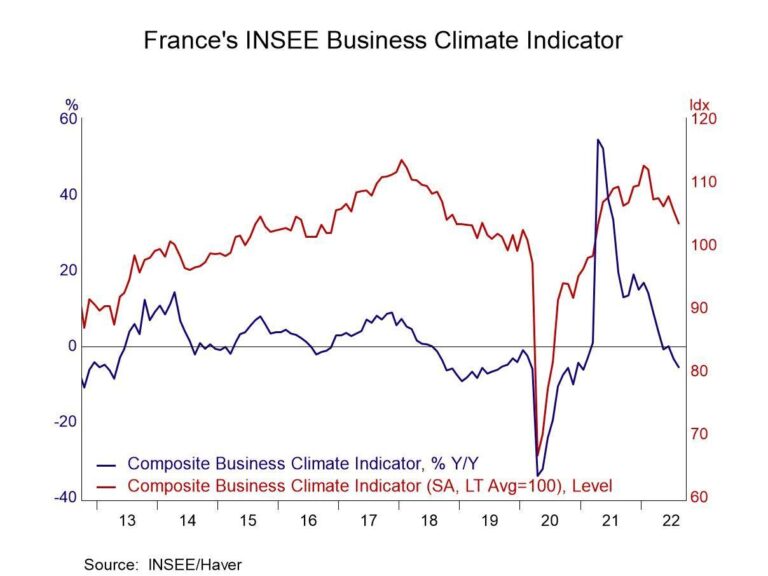Despite ongoing political uncertainty, France’s business climate remains resilient, maintaining a steady course amid challenges that have unsettled markets elsewhere. Recent economic data and expert analyses reveal that companies in the country are navigating turbulent political waters without losing momentum, signaling confidence in France’s long-term growth prospects. This report delves into the factors underpinning the stability of France’s business environment and what it means for investors and stakeholders moving forward.
France’s Business Climate Remains Resilient Amid Political Turbulence
Despite recent political upheavals and widespread social unrest, France’s economic backbone has shown remarkable tenacity. Major industries, including technology, manufacturing, and tourism, have maintained steady growth trajectories, bolstered by robust domestic demand and adaptive business strategies. Investors remain cautiously optimistic, with many citing strong government support measures and resilient consumer spending as key pillars that continue to sustain corporate confidence even in an uncertain climate.
Key factors contributing to this resilience include:
- Consistent foreign direct investment inflows, particularly in renewable energy and digital sectors
- A flexible labor market that enables quicker adjustments to economic fluctuations
- Innovative government stimulus packages aiming to support SMEs and startup ecosystems
| Sector | Q1 Growth (%) | Investment Trend |
|---|---|---|
| Technology | 4.8 | Increasing |
| Manufacturing | 2.3 | Stable |
| Tourism | 5.1 | Rising |
Key Economic Indicators Signal Stability in Major Sectors
Recent data highlights that France’s core economic sectors are maintaining a steady performance amidst a backdrop of political uncertainty. Industrial output has shown resilience, with manufacturing indices recording a marginal 0.3% growth over the past quarter. Similarly, the services sector, which constitutes a significant portion of the GDP, continues to exhibit stable demand despite headwinds from global supply chain disruptions. Analysts attribute this steadiness to sustained consumer confidence and moderate inflationary pressures that have not yet dampened domestic spending.
Key metrics reinforce this narrative of stability, underscoring the balanced dynamics in employment and trade. The unemployment rate has hovered around 7.1%, reflecting minor fluctuations but no sharp upticks that could signal economic distress. Expanding on these figures, the following table summarizes performance trends across vital indicators:
| Indicator | Current Value | Change (QoQ) | Insight |
|---|---|---|---|
| Manufacturing PMI | 51.2 | +0.4% | Bullish sentiment, modest expansion |
| Consumer Confidence Index | 98.7 | -0.8% | Stable but cautious outlook |
| Unemployment Rate | 7.1% | -0.1% | Near pre-pandemic levels |
| Trade Balance | -€3.4B | Improved from previous quarter | Exports recovering steadily |
- Inflation: Moderating, allowing consumer purchasing power to remain intact.
- Investment: Private sector capital expenditure is cautiously optimistic.
- Government Spending: Focused on stabilizing key infrastructure initiatives.
Investor Confidence Sustains Despite Policy Uncertainties
Even as France navigates a complex web of political reforms and shifting regulatory landscapes, the resilience of investor sentiment remains noteworthy. Market players are displaying a cautious optimism, buoyed by stable corporate earnings and sustained foreign investment inflows. This steady confidence is underpinned by France’s robust economic fundamentals, including low unemployment rates and strong export performance, which continue to offset the potential drag from policy ambiguities.
Investors remain focused on key factors driving market stability:
- Consistent government support for innovation and technology sectors
- Diversified industrial base mitigating sector-specific risks
- Active engagement in European Union economic initiatives
| Indicator | Q1 2024 | Q4 2023 | Change |
|---|---|---|---|
| Foreign Direct Investment (FDI) | €15.3B | €14.8B | +3.4% |
| Business Confidence Index | 101.2 | 100.7 | +0.5 pts |
| Corporate Earnings Growth | 5.6% | 5.3% | +0.3% |
Strategic Recommendations for Navigating France’s Evolving Market Landscape
Companies aiming to thrive in the current French market should prioritize flexible business models capable of adapting swiftly to policy shifts and economic fluctuations. Employing a diversified approach—both geographically within Europe and across various sectors—can cushion the inherent risks linked with ongoing political uncertainties. Additionally, fostering strong partnerships with local stakeholders will accelerate market penetration and enhance operational resilience.
Investment in digital transformation remains paramount. Leveraging data analytics and e-commerce platforms not only improves customer engagement but also streamlines supply chain operations in a landscape marked by evolving consumer behavior. The table below outlines key strategic focus areas alongside their anticipated impact over the next 12-18 months:
| Strategic Focus | Expected Outcome |
|---|---|
| Agile Supply Chains | Reduced Disruption Risk |
| Local Market Collaboration | Enhanced Brand Loyalty |
| Digital Customer Engagement | Increased Revenue Channels |
| Sectoral Diversification | Risk Mitigation |
Final Thoughts
In summary, while political uncertainties continue to loom over France, the resilience of its business climate remains evident. Investors and industry leaders alike are navigating the challenges with cautious optimism, underscoring the country’s enduring economic fundamentals. As the situation evolves, market watchers will be closely monitoring policy developments and their potential impact on France’s commercial environment. For now, the steady business landscape offers a measure of stability amid political flux.




